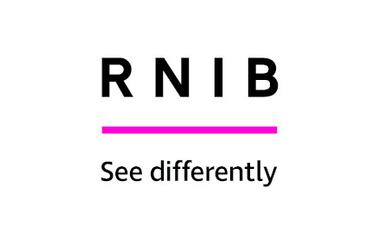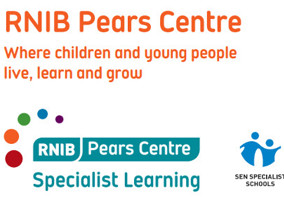The Royal National Institute of Blind People let down children in its care due to systemic governance failings, a Charity Commission statutory inquiry has found.
The charity regulator opened a statutory inquiry in March 2018 after the charity reported serious incidents relating to safeguarding and Ofsted’s intention to cancel the registration of the RNIB Pears Centre children’s home. Shortly afterwards, RNIB's chief executive, Sally Harvey, resigned.
The report details problems in keeping children safe at the RNIB Pears centre, a breakdown in the relationship between some trustees and executives, and the contribution of “dysfunctional” governance arrangements.
The Commission’s report draws on findings from an independent review led by Hugh Davies QC, and a subsequent governance review and safeguarding review.
RNIB has been issued with an official warning due to the seriousness of the findings. The Commission has also sent out a regulatory alert to other care-providing charities working in a similar area.
RNIB said it accepts the findings of the report and apologised to the parents.
RNIB Pears centre
The RNIB Pears Centre for Specialist Learning was a school and children’s home with capacity for 30 residential and 10 day students.
It opened in 2011, replacing the nearby RNIB Rushton School and Children’s Home. Part of the site provided care for children with highly complex needs and was registered with the Care Quality Commission.
In 2017 and 2018, serious issues were identified by Ofsted and the CQC.
The independent review found that the centre operated with too much independence from the main charity, was resistant to criticism, provided poor staff training and made frequent errors relating to medication.
In one case, this led to a child suffering an increase in epileptic fits. The Commission reports that the safeguarding inquiry found that the parent was not informed of a medical appointment: “Had the parent been present, they would have been able to tell the doctor the medication had previously been tried and had made their child’s epilepsy worse.”
In another example, the safeguarding review found that a parent had complained that the temperature of the bathwater for their child was too hot, at 41°C, only to be told that this was normal practice. The child’s pocket money was also used to purchase a thermometer.
“The safeguarding review concluded from records they have seen that the complaint was substantiated and the child’s pocket money should not have been used to purchase a thermometer,” the review states.
It also told the Commission: “There was a delay of at least three months in obtaining new boots for a child who sustained injuries caused by boots that were too small.”
The report says that RNIB’s failure to ensure RNIB Pears was operating in line with regulations constituted a “misconduct and/or mismanagement”.
In 2019 the charity announced its plans to shut the centre. The property has now been sold to the local council for £10m.
Other regulated settings
More broadly, the Commission criticises RNIB for the lack of a centralised system to manage data relating to care settings.
According to the independent review, its regulated establishments operated with a “high degree of autonomy”.
The Commission concludes: “There were systemic shortcomings at RNIB between 2015 and 2018, exacerbated by the 2017 charity reorganisation.”
This reorganisation saw unqualified staff appointed to key roles.
The report says: “It is the Commission’s view that some of RNIB’s beneficiaries at its regulated activity establishments were placed at undue risk of harm – in addition some beneficiaries suffered harm or distress and they and their families were badly let down by RNIB.”
‘Corporate governance did not address complexity of charity’s activities’
The Commission says the overall standard of governance was not adequate.
It states that one of RNIB’s shortcomings was its “broader corporate governance, which did not adequately address the complexity, scale, nature and associated risks of the charity’s activities and disparate group structure”.
The independent review made a number of recommendations to simplify the charity's governance and make it easier to recruit trustees on the basis of their skills.
At the time, 50% of RNIB's trustees were elected and 75% had to have a sight impairment.
‘Dysfunction in leadership and governance’
The report states that, in addition to having a poor governance structure, the relationship between key individuals had broken down.
It says: “The independent review found that between 2016 and 2017, trust had broken down between some of the executives and trustees, and there was a culture where strategy was too slow to be implemented.”
It adds there was a “dysfunction in leadership and governance over many years, a point that was repeated to the inquiry by various parties previously involved with RNIB”.
In a progress update shared by RNIB to coincide with the publication of the report, the charity says it has it has recruited new trustees with appropriate skills, including a safeguarding lead.
It has also made changes to its committee structure and created a governance, transformation and implementation group.
‘One of the worst examples we’ve seen’
Speaking about the findings, Helen Stephenson, chief executive of the Commission, said: “This is one of the worst examples we have uncovered of poor governance and oversight having a direct impact on vulnerable people. A catalogue of serious failings were allowed to occur, because the charity’s governance was simply too weak for the trustees in charge of the charity to do the job that beneficiaries needed them to do.
She added: “Charity trustees should therefore ensure that systems of governance and management help, rather than hinder, their charity from delivering on its purpose and meeting the needs of those it is set up to help.
“I am concerned that what happened here lets down all those doing good work in so many charities to care for people to high standards.”
Two-year reconstruction programme
The Commission has approved an action plan submitted by RNIB involving a two-year reconstruction programme. The regulator also used other powers to support refinancing of debt the charity had incurred and the appointment of new trustees.
RNIB is in the process of transferring all its regulated care services to other providers, and the Commission said it is making good progress against the action plan.
The regulator said it would continue to monitor the charity.
RNIB: ‘We are truly sorry’
RNIB has apologised for the failings, which it describes as a “low point” in its history.
Matt Stringer, CEO at RNIB, said: “We are truly sorry for the failings identified in this report, which represents the low point in our 152-year history. It is clear that we seriously let down children and their families, staff, volunteers, supporters and blind and partially-sighted people who make up the RNIB community. We are sorry to every one of them.
“We fully accept the Charity Commission’s recommendations and the inquiry report acknowledges that we are making good progress in implementing them. We have made significant changes to RNIB and are continuing to embed improvements to ensure that these failings can never happen again. We are committed to emerging from this as a better, more determined, and more effective organisation.”
Stringer joined RNIB in May 2019. The charity has also appointed a new permanent director of finance, director of digital transformation, director of property and director of people and organisational transformation, director of care, education and safeguarding, and company secretary.
Financial challenges
The impact of the scandal surrounding the RNIB Pears Centre had significant financial implications for the charity.
When Ofsted signalled its intention to cancel the centre's registration, two of RNIB’s institutional creditors considered that events of default had taken place. This enabled them to declare all amounts outstanding – £21m – immediately due and payable.
RNIB was not in a position to pay and would have been forced to take emergency refinancing measures had the debts been called in. Negotiations with the creditors led to RNIB seeking permission from the Commission for “charges on RNIB’s premises at Judd Street, London, in favour of the creditors”.
The centre originally cost £26.6m to develop, which was largely funded through borrowing. It then ran a cumulative operating deficit of £13.5m, including £8.4m in loan interest.
In total, the Commission estimates that the centre came at a cost to RNIB of £30.7m.
The charity ended up needing to use £5.5m from its reserves to pay off the residual debt for the failed enterprise.
In its progress update, RNIB said that since then, “bank debt outstanding reduced from nearly £25m at 31 March 2017 to zero”.
Related articles











